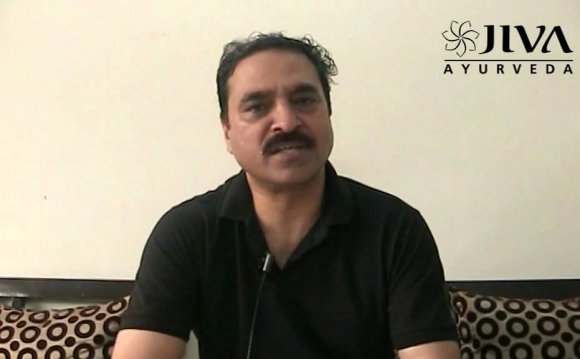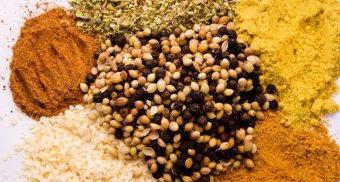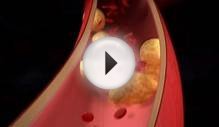
 Many people think that cholesterol is bad, however, cholesterol is essential to many bodily functions, and only bad when unbalanced. Cholesterol is a fatty acid produced in the liver, and it is used by the body for numerous actions, including building cell membranes, synthesizing vitamin D, hormones, and bile acids.
Many people think that cholesterol is bad, however, cholesterol is essential to many bodily functions, and only bad when unbalanced. Cholesterol is a fatty acid produced in the liver, and it is used by the body for numerous actions, including building cell membranes, synthesizing vitamin D, hormones, and bile acids.
Ayurveda has a slightly different view on cholesterol than Western medicine. Ayurveda views cholesterol as playing an important role in supporting and lubricating the body’s numerous circulatory channels, known as shrotas. The shrotas are the circulatory channels of the body; micro-shrotas carry nutrients to the cells and waste from the cells. Larger shrotas, such as the arteries and veins, carry blood to and from the heart. To be healthy and functional, the shrotas must be flexible and elastic, and cholesterol plays a role in constantly lubricating and supporting the shrotas. This is particularly the case for the delicate pranavahi shrotas that lead to the brain as well as the shrotas that carry hot fluids, i.e. blood.
What Is Bad Cholesterol?
From the perspective of Ayurveda, cholesterol isn’t bad in and of itself, however, it can have harmful effect when ama is present in the body. A ma, are metabolic left-overs that accumulate like toxins in the fat tissue. Simple ama is the sticky, foul-smelling waste product of improper digestion, which can block the channels of the body, such as the arteries.
A more reactive, dangerous type of ama, amavisha is created when ama is present for a very long time and is not cleansed from the system. When excessive, accumulated ama begins to spread throughout the body, it becomes mixed up with the dhatus (body tissues) and the malas (waste products). Once amavisha gets mixed in with the fat tissue, it damages the shrotas, and this in turn leads to problems such as high cholesterol, heart disease, stroke and high blood pressure.
Natural Ways to Lower Cholesterol
To lower cholesterol naturally, Ayurveda doesn’t just focus on cholesterol lowering foods, but rather on dietary recommendations, which will balance the overall fat metabolism of the body. For this, Ayurveda recommends balancing Kapha dosha, one of the three bodily principles involved in fat metabolism. Unbalanced Kapha lies at the root of excess production of cholesterol in the body. To help pacify Kapha dosha and enhance fat metabolism, follow a Kapha-pacifying diet, which especially favors foods with bitter, astringent and pungent tastes.
Astringent foods: This includes pulses or dried beans, such as lentils, split mung dhal, and garbanzo beans. Avoid larger beans, instead favor the smaller, split kind. Astringent tastes also includes many vegetables, such as the cruciferous family (broccoli, cabbage, and cauliflower) and fruits such as apples and pears.
Bitter foods: All sorts of leafy greens, including spinach, chard, kale and mustard greens. When cooked and seasoned with spices, these greens help cleanse the bowel, which helps prevent bad cholesterol from accumulating in the body.
The Kapha-pacifying diet also includes many healthy grains. Barley enhances fat metabolism. Oats provide needed fiber, as long as it is whole oats, not processed oats. Quinoa provides zinc, which enhances fat metabolism. Amaranth is also recommended.
Avoid sweet, sour and salty foods. This doesn’t just mean sugar, but also sweet grains like wheat, rice, pasta, and breads, along with sweet milk products. Sour foods include not only lemons and other sour fruits, but yogurt, cheese, tomatoes and vinegar, which is found in salad dressings, ketchup, mustard and pickles.
Cook your food and eat it warm as this also helps counteract the cool, earthy Kapha dosha. Avoid bad fats (saturated fats and transfats), and cook with small amounts of ghee or olive oil.
For flavoring your food, try this Cholesterol-Balancinging Spice Mixture:
Cholesterol Balancing Spice Mixture
- 3 parts ground turmeric
- 6 parts ground cumin
- 6 parts ground coriander
- 6 parts ground fennel
- 2 parts ground fenugreek
- 1 part dried powdered ginger
- 1 part ground black pepper
More:
- Find all the info that you need about " no deposit bonus casinobonus2 " at casinobonus2
RELATED VIDEO












